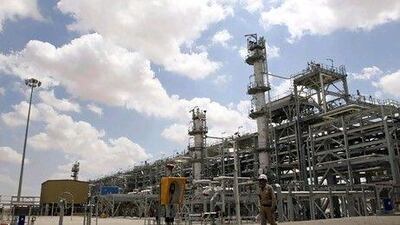Until recently, Syria was not a big presence in energy markets, coming in at number 33 on the list of the world's top oil producers.
Syria: Violence overshadow ambitions
Gulf to help EU as Syrian oil banned Nations in the Gulf are ready to replace Syrian oil supplies as fresh EU sanctions come into effect. Read article
Supertanker owners stand to benefit in scramble to fill oil gap The Syrian oil embargo is good news for supertankers, the massive vessels that carry 2 million barrels of oil at a time. Read article
Yet it hoped to transform itself from a minor crude exporter into a major transit point for the world's energy.
Just this year, the government signed deals for multibillion-dollar pipelines from Iran and Iraq, invited foreign companies to drill offshore for the first time and sought builders for a 100-megawatt wind farm.
Now, increased sanctions on the regime of Bashar Al Assad, the Syrian president, have put those plans in doubt.
Yesterday, the EU formalised a ban on imports of Syrian oil, depriving the regime of its main crude customer. The ban does not extend to investment in energy projects, but mounting international pressure on the Al Assad regime because of violent crackdowns on protesters could scare off foreign investors.
"They'll all be very reluctant to put new money in while there's so much uncertainty," says Catherine Hunter, an energy analyst at IHS Global Insight in London. "Finance from developmental organisations is drying up."
The price for Syria could be high. Deadlines are approaching for international bids for two new oil and gas production sites, and Iran and Iraq were relying on Syria to serve as a gateway for their oil and gas to reach European markets.
"The issue is very much about Syria's importance in companies' portfolios and the increasing restrictions and potential costs of doing business at the current time against the benefits," Ms Hunter wrote in a separate research note. "These costs are not just financial and political, but also potentially reputational."
The National looks at some of the projects hanging in the balance.
Production
Syria's oil production peaked in 1996, when it pumped a record 582,000 barrels per day (bpd), according to the US Energy Information Administration.
By last year, that had declined to 387,000 bpd. Most of that was heavy oil, a product from ageing fields not as highly valued by refiners.
Starting last year, Syria began opening up new areas to drilling to boost its declining output.
In May, it awarded licences to France's Total and Petro-Canada to explore a set of onshore blocks. Dana Gas, an energy company based in Sharjah, has also bid to explore part of the remaining share.
State-owned China National Petroleum Corporation, which holds a one-fifth stake in Syria's main production consortium, was among the other bidders.
Chinese companies could gain an edge in energy project awards if European companies withdraw, said an oil industry official.
"The opportunity will be favourable for Chinese companies, in the event of withdrawal of European investments, to buy assets," Ali Abbas, the director of Syria's General Petroleum Corporation, was quoted as saying on the Syrian news website Day Press. Next month and in November, foreign companies face deadlines to bid for two more projects, one to drill offshore for gas and another to develop oil shale resources.
The oil shale blocks 96km south-west of the city of Aleppo hold an estimated 39 billion tonnes of deposits. But turning the mixture of hydrocarbons and rock into fuel is more challenging and costly than pumping crude.
Pipelines
"Really, Syria's long-term potential is all about transit," Ms Hunter says.
Two pipelines more than half a century old link Iraqi and Saudi oilfields with the Syrian coast, a potential route for export to western markets via the Mediterranean. But both have been unused for years.
In June, Syria and Iraq penned an early-stage agreement to repair one of the pipelines and build two new ones that would transport 2.75 million bpd.
The following month it signed a preliminary deal with Iraq and Iran for a US$10 billion (Dh36.73bn) pipeline to send Iranian natural gas through both countries and on to Europe.
The planned pipeline would stretch 5,000km and connect to the Arab Gas Pipeline, which stretches through Egypt, Jordan, Syria and Turkey.
Renewables
Like other oil producers in the region, Syria was eager to replace some of the fossil fuels it burns to produce power for its citizens with renewable energy. Its plan was to build wind farms of between 50 and 100 megawatts each near the ancient town of Palmyra and Damascus, the capital. Last year it awarded the Danish wind giant Vestas the contract for its first wind power plant, a 90-megawatt array near the town of Homs.
In January, the government awarded a contract to Spain's Gamesa to build another wind farm near the same city, a project worth €60 million (Dh313.1m).

